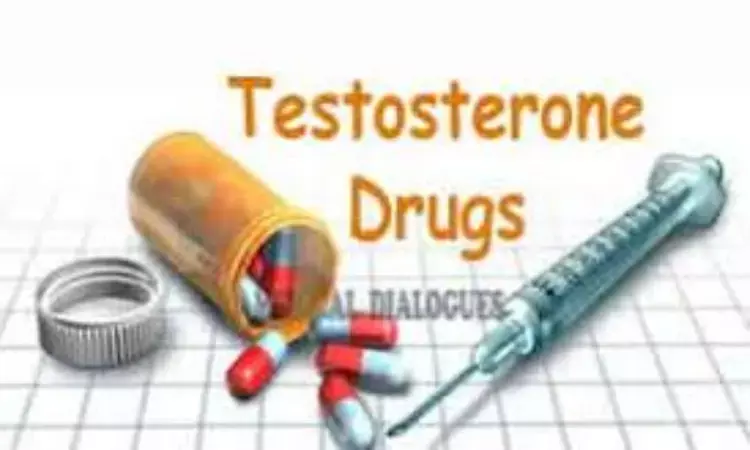- Home
- Medical news & Guidelines
- Anesthesiology
- Cardiology and CTVS
- Critical Care
- Dentistry
- Dermatology
- Diabetes and Endocrinology
- ENT
- Gastroenterology
- Medicine
- Nephrology
- Neurology
- Obstretics-Gynaecology
- Oncology
- Ophthalmology
- Orthopaedics
- Pediatrics-Neonatology
- Psychiatry
- Pulmonology
- Radiology
- Surgery
- Urology
- Laboratory Medicine
- Diet
- Nursing
- Paramedical
- Physiotherapy
- Health news
- Fact Check
- Bone Health Fact Check
- Brain Health Fact Check
- Cancer Related Fact Check
- Child Care Fact Check
- Dental and oral health fact check
- Diabetes and metabolic health fact check
- Diet and Nutrition Fact Check
- Eye and ENT Care Fact Check
- Fitness fact check
- Gut health fact check
- Heart health fact check
- Kidney health fact check
- Medical education fact check
- Men's health fact check
- Respiratory fact check
- Skin and hair care fact check
- Vaccine and Immunization fact check
- Women's health fact check
- AYUSH
- State News
- Andaman and Nicobar Islands
- Andhra Pradesh
- Arunachal Pradesh
- Assam
- Bihar
- Chandigarh
- Chattisgarh
- Dadra and Nagar Haveli
- Daman and Diu
- Delhi
- Goa
- Gujarat
- Haryana
- Himachal Pradesh
- Jammu & Kashmir
- Jharkhand
- Karnataka
- Kerala
- Ladakh
- Lakshadweep
- Madhya Pradesh
- Maharashtra
- Manipur
- Meghalaya
- Mizoram
- Nagaland
- Odisha
- Puducherry
- Punjab
- Rajasthan
- Sikkim
- Tamil Nadu
- Telangana
- Tripura
- Uttar Pradesh
- Uttrakhand
- West Bengal
- Medical Education
- Industry
Testosterone therapy not linked to recurrence of prostate cancer after treatment: Study

USA: Testosterone therapy(TT) is safe after definitive treatment of localized prostate cancer in appropriate patients, suggests a recent study in the journal Prostate Cancer and Prostatic Diseases. According to the study, after surgery or radiation, TT did not increase the risks of prostate-cancer specific or overall mortality and biochemical recurrence.
Reith R. Sarkar, University of California San Diego, La Jolla, CA, USA, and colleagues analyzed the risks of biochemical recurrence and mortality in men receiving TT after treatment for localized prostate cancer.
Cohort analysis was conducted using the US Veterans Affairs Informatics and Computing Infrastructure. The researchers identified 69,984 patients having localized prostate cancer and were treated with radiation or surgery. Receipt of TT was coded after treatment as a time-dependent covariate. The National Death Index fused to identify the cause of death and defined biochemical recurrence as PSA > 0.2 ng/mL after surgery and nadir + 2 ng/mL after radiation. Using cumulative incidence curves, Fine–Gray competing risk regression, and Cox regression, the researchers analyzed recurrence and mortality.
This cohort included 28,651 surgery patients and 41,333 radiation patients, of whom 469 (1.64%) and 543 (1.31%), respectively, received TT with a median follow-up of 6.95 years.
Key findings of the study include:
- Comparing testosterone users to nonusers, there were no between-group differences in biochemical recurrence, prostate cancer-specific mortality, or overall mortality after surgery [hazard ratios (HR): 1.07; HR: 0.72 and HR: 1.11 respectively] or radiation [HR: 1.07; HR: 1.02; and HR: 1.02, respectively.
- Limitations included lack of detailed data on TT duration and serum testosterone concentrations.
"In this multi-ethnic national cohort, TT did not increase the risks of biochemical recurrence or prostate cancer-specific or overall mortality after surgery or radiation. These data suggest that TT is safe in appropriate men after definitive treatment of localized prostate cancer," concluded the authors.
The study, "Testosterone therapy does not increase the risks of prostate cancer recurrence or death after definitive treatment for localized disease," is published in the journal Prostate Cancer and Prostatic Diseases.
DOI: https://doi.org/10.1038/s41391-020-0241-3
Dr Kamal Kant Kohli-MBBS, DTCD- a chest specialist with more than 30 years of practice and a flair for writing clinical articles, Dr Kamal Kant Kohli joined Medical Dialogues as a Chief Editor of Medical News. Besides writing articles, as an editor, he proofreads and verifies all the medical content published on Medical Dialogues including those coming from journals, studies,medical conferences,guidelines etc. Email: drkohli@medicaldialogues.in. Contact no. 011-43720751


